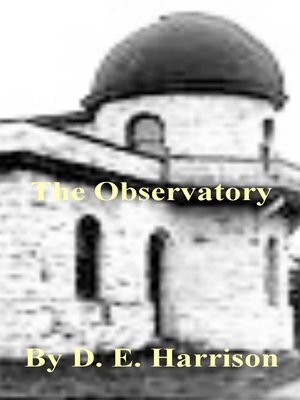
Sign up to save your library
With an OverDrive account, you can save your favorite libraries for at-a-glance information about availability. Find out more about OverDrive accounts.
Find this title in Libby, the library reading app by OverDrive.



Search for a digital library with this title
Title found at these libraries:
| Library Name | Distance |
|---|---|
| Loading... |
Galileo is credited with the first telescope, but there were many people involved before him. However, he made it into a science.
Metal mirrors were first used to reflect the star light. They worked but had problems. When glass could be formed into mirrors and then silvered to reflect the star light, astronomy became a true science. In England in the 1850-90 a small university had the money and telescope to do leading edge astronomy. Unfortunately, over time the money ran out and others had better telescopes.
A hundred year later the astronomy department is almost closed. The final two students can find no telescope time for research. The past Chancellor sold the telescope many years ago. The current Chancellor is selling all the property and buildings on the observatory's property. The Chancellor is paying the two-astronomy student a small amount to see if there is any value in the buildings before the land agent bulldozers the buildings over.
The students find that some of the old lumber has value. The college library has some ancient manuscripts that say the village and site may have a national historical value. The university sees money in this and moves on that. It sells to the students the cleaning and all materials in the buildings for a very small amount. The students hope to publish an article on the history of the telescope.
A major astronomical find is discovered in the basement of the old observatory and the students go to a barrister for help. How much of the find can they keep and what does it show?
Meanwhile, in a very luxurious conference room in New York city a meeting is about to start.
Around the conference table sits people that control $100s of millions in private grant money.
A fellow stands, "Your people have reviewed our proposal. Briefly, I wish to build six radio telescopes, carefully placed on the earth. We are going to photograph the first black hole at the center of our galaxy."
A fellow asks a question, "You hope to build a scope at the south pole? The exact south pole?"
"Yes, we need it there to complete the grid of six radio scopes all over the world. This will provide positive proof of the black hole."
Another fellow stands, "You have requested $100 million. What use of the equipment is there after the initial experiment is successful? But what if it fails?"
"We have outlined our entire program after we photograph the black hole. We will return on your investment at least three time, not counting the good will."
The chairman asks, "Do we fund, yes or no?"
It is not a 100 % yes vote, but close enough.
"We will finalize the paperwork, the funding milestones, the review points, and the completion. There will be standard language as usual.
"May this be the success we all expect."







